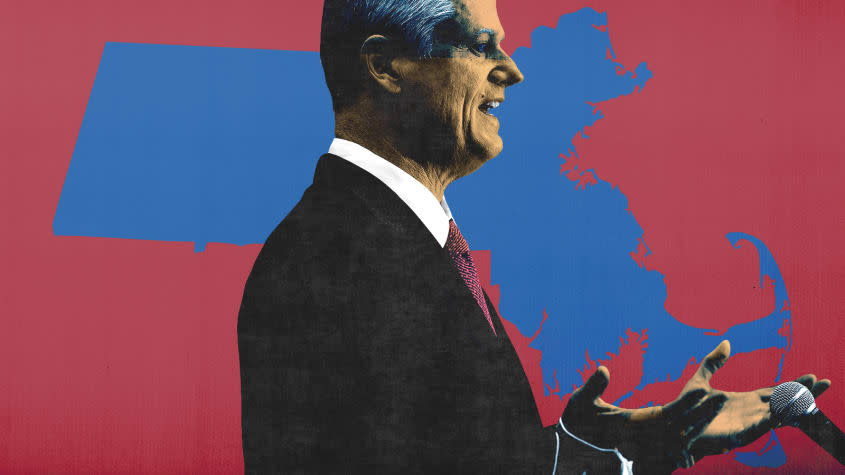Charlie Baker and the end of moderate Republicanism

What do you do if you're a popular governor with a good chance to make history as the first in your state to win three consecutive four-year terms? If you're Charlie Baker (R) of Massachusetts, you retire.
Although it contradicted some early indications, the announcement Wednesday was not altogether a surprise. A technocratic centrist of a vanishing breed, Baker polls better with Democrats than with Republicans, and he faced a primary challenge from Geoff Diehl, who successfully pursued former President Donald Trump's endorsement and features it prominently on his website. Baker's overall approval ratings are recovering since their lowpoint, and he could have made a plausible bid as an independent. But he ruled out that option last week, stating, "I've been a Republican for almost all of my adult life, and I believe in my brand of Republicanism."
Yet Baker's commitment to a highly personal brand of Republicanism may be part of the problem. During his time in office, Baker made few efforts to reassure the GOP rank and file he was on their side. By contrast, Maryland's Gov. Larry Hogan, another blue state Republican, combined criticism of the Trump administration with rhetorical and legislative defense of the state party's interests. Even if several of Hogan's stands were ultimately symbolic, they help protect him against accusations of being a RINO — Republican In Name Only.
On a more fundamental level, though, it's just not Baker's party. And while Diehl initially avoided national issues, his campaign soon came to lean heavily on issues that excite conservative activists but are unlikely to resonate with the broader public in Massachusetts, including accusations of voting irregularities in the 2020 election and opposition to vaccine mandates.
That right turn in a state President Biden won by 33 percent may seem counterintuitive. In the abstract, it makes more sense to moderate, seeking the votes of independents and ticket-splitters. That's not what parties reduced to a perennial minority do, though. Because Massachusetts Republicans have already lost centrist voters, statewide offices, and competitive legislative seats, there's no longer a bulwark against the most partisan and ideological influences. The dynamic is underway in California, where Republicans rallied behind the talk show host Larry Elder, who went on to lose badly to Gov. Gavin Newsom (D).
It's too early to count Diehl out against his Democratic rivals. Political campaigns can take surprising turns, and Glenn Youngkin showed in Virginia that skilful Republicans can succeed with voters who supported Biden in 2016. The most likely outcome of Baker's exit, though, is that Massachusetts will continue the trend toward single-party rule that is making state politics simultaneously both more predictable and more bitterly contested. That's a loss for us all.
You may also like
Police reportedly seize hard drives from Marilyn Manson's home amid sexual assault probe
Tiger Woods opens up about 'tough' recovery after car accident: 'I'm lucky to be alive'

 Yahoo Finance
Yahoo Finance 